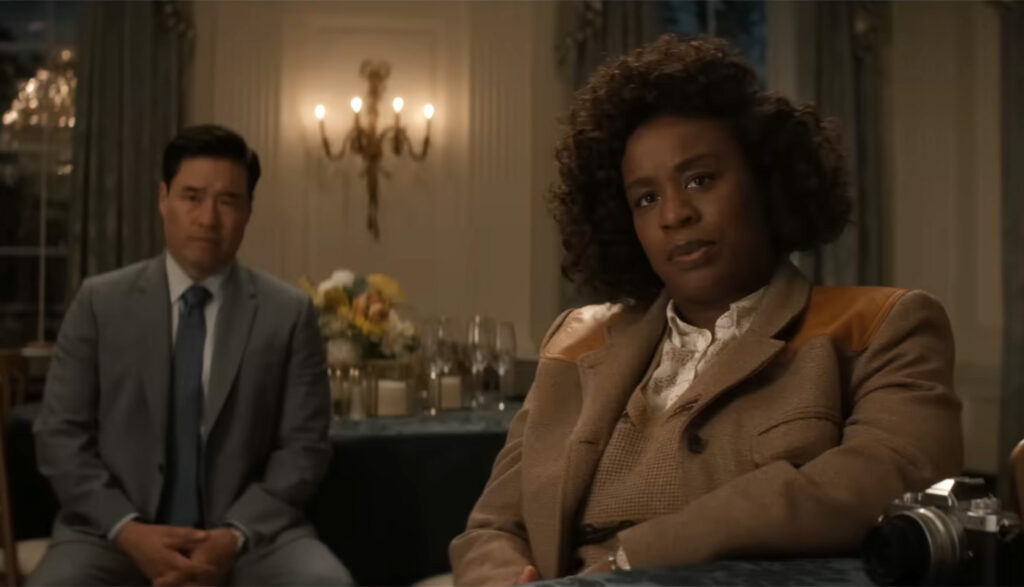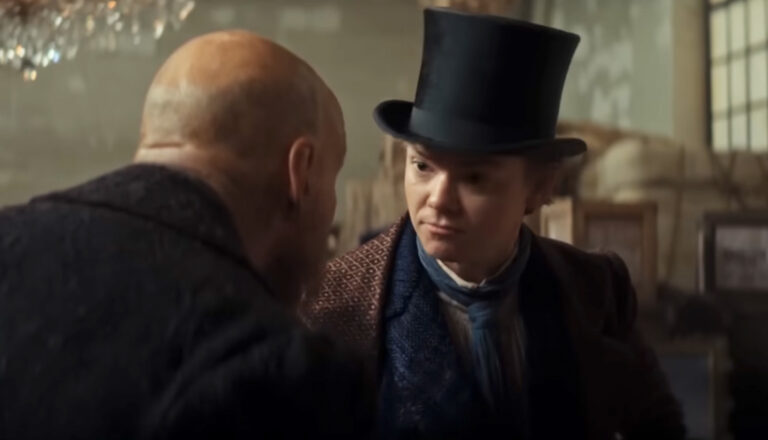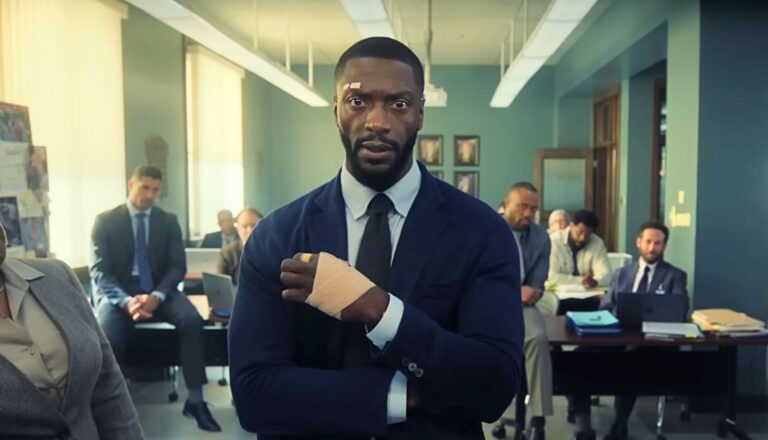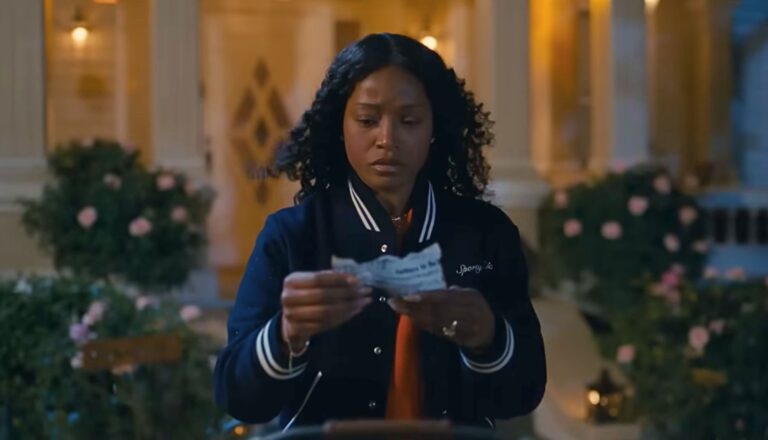
Unfamiliar
Filled with gritty violence and foul language, when it comes to this German spy drama, “unfamiliar” is how most viewers should stay.

Every great fictional detective has an unusual quirk.
Miss Marple had no criminology background, and she enjoyed knitting and gardening in her spare time. Sherlock Holmes made a study of nearly everything necessary to solve a crime, but of course, he was addicted to cocaine and had no knowledge of the solar system.
Cordelia Cupp’s quirk is that she really enjoys birdwatching. In fact, she carries around a book containing details of every bird in the world, along with a pair of binoculars, everywhere she goes.
But no matter how people might perceive this quirk, it has helped Cordelia in her career as a consulting detective.
A good birder listens, watches and waits, Cordelia says.
And apparently, the same goes for a good detective. Because Cordelia will have to do a lot of listening, a lot of watching and a lot of waiting if she’s to solve the murder of the White House’s Chief Usher, A.B. Wynter.
Netflix’s The Residence joins the ranks of The Afterparty, Death and Other Details, Knives Out and, of course, the aforementioned works of Agatha Christie and Sir Arthur Conan Doyle.
At times, this murder-mystery miniseries can be funny and intriguing. Cordelia Cupp masterfully shuts down anyone and everyone who tries to hinder her investigation. (Not to mention the fact that she’s just entertaining to watch.) And by the end, you’ll be itching to know whodunnit.
But the series also contains a lot of language—mostly f-bombs. We see a couple having sex (though there’s no nudity). The fictional president in this series is a gay man, married to another man. There are also plenty of political undertones, which maybe sorta make sense given the White House setting but which also often feel unnecessary.
The show also touches on the topic of suicide, since that’s what everyone thinks happened to A.B. until Cordelia arrives on the scene. And obviously, there’s the murder itself.
That’s a lot of slop to ask families to muck through, which is likely why Netflix rated The Residence TV-MA. But older fans of parlor room mysteries shouldn’t brush that rating off, either.
As much as we (and I do include myself among fans of this genre) might enjoy solving a good mystery, this series still results in somebody’s death. And that’s worth consideration, especially given the other content concerns inhabiting The Residence.
(Editor’s Note: Plugged In is rarely able to watch every episode of a given series for review. As such, there’s always a chance that you might see a problem that we didn’t. If you notice content that you feel should be included in our review, send us an email at letters@pluggedin.com, or contact us via Facebook or Instagram, and be sure to let us know the episode number, title and season so that we can check it out.)
Cordelia Cupp, a consulting detective, is called to the White House on the eve of an important State Dinner to investigate a staff member’s unexpected death.
We see A.B. Wynter’s dead body on the floor. Because of visible cuts on his wrists, several people insist his death must have been a suicide. (One guy even celebrates when a suicide note is found, since it means he was right.) And they try to dismiss the death as quickly as possible so they can get back to the party.
However, when Cordelia examines the body, she finds cuts on A.B.’s face, a contusion on the back of his head and signs of poisoning. She also unbuttons his jacket to find blood on his shirt, as well. She explains that the cuts on the wrist are inconsistent with a suicide attempt and that they were likely inflicted postmortem. And she discovers A.B.’s handkerchief covered with blood in a trash can.
A woman screams when she first discovers the body. We hear that Cordelia solved a case in which everyone initially believed the wife had killed her husband; but it turned out to be their daughter, who had trained their dog to fire a gun. Cordelia says that 10 other people have died in the White House. She says none were suspicious deaths except that of President Zachary Taylor, who died after eating a very large bowl of cherries.
During an interview, a woman awkwardly says she wasn’t watching pornography, since she assumes that’s what the detective will think. The same woman says that when her husband died in their bed, she wasn’t aware. So she tried to arouse him, noting that she didn’t find his unresponsiveness unusual. A man squeezes his wife’s leg.
A White House employee drinks in a public space while working due to a disappointing revelation about the future of her career. Butlers serve drinks to people at a party.
Many people lie or otherwise deflect attention in order to keep A.B.’s death a secret from partygoers downstairs and/or to protect themselves. Several characters are rude and condescending, especially to Cordelia. They don’t believe she should be heading up the investigation, despite her reputation as an excellent detective. Cordelia is irritated that most of the people trying to tell her what to do are “dudes.” And she’s disrespectful to a guy she believes was assigned to tail her.
The show cuts back and forth between the night of A.B.’s death and a congressional committee a few months later. In this committee, senators interview people who were at the White House the night A.B. died. It seems that there is still speculation about whether he died by suicide or was murdered. Much of that conversation is politically driven since the current president’s administration is not a popular one. One senator makes brash accusations. And everyone seems willing to point a finger at someone else.
We hear 18 uses of the f-word and two of the s-word. God’s name is abused five times, once paired with “d–mit.” Jesus’ name is misused once. And we hear single uses of “d–k,” “h—” and “p-ss.”

Emily studied film and writing when she was in college. And when she isn’t being way too competitive while playing board games, she enjoys food, sleep, and geeking out with her husband indulging in their “nerdoms,” which is the collective fan cultures of everything they love, such as Star Wars, Star Trek, Stargate and Lord of the Rings.

Filled with gritty violence and foul language, when it comes to this German spy drama, “unfamiliar” is how most viewers should stay.

Oliver Twist’s Artful Dodger isn’t 13 anymore: He’s an adult. And being an adult comes with more grown-up problems.

Though it’s compelling, the content concerns in Prime Video’s ‘Cross’ might be enough to cross it off your watch list.

‘The ‘Burbs’ is Peacock’s attempt to adapt the 1989 movie of the same name. But a fresh coat of paint doesn’t hide the content issues.